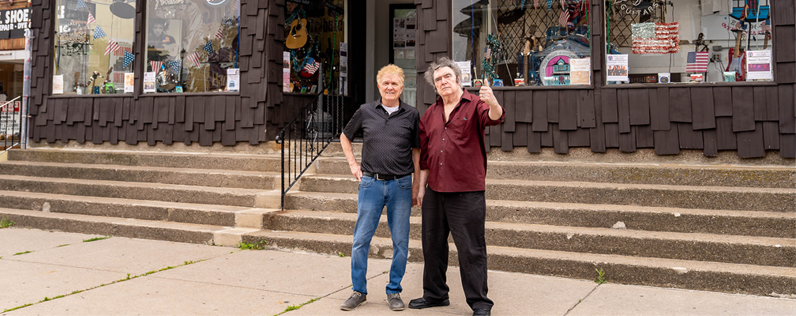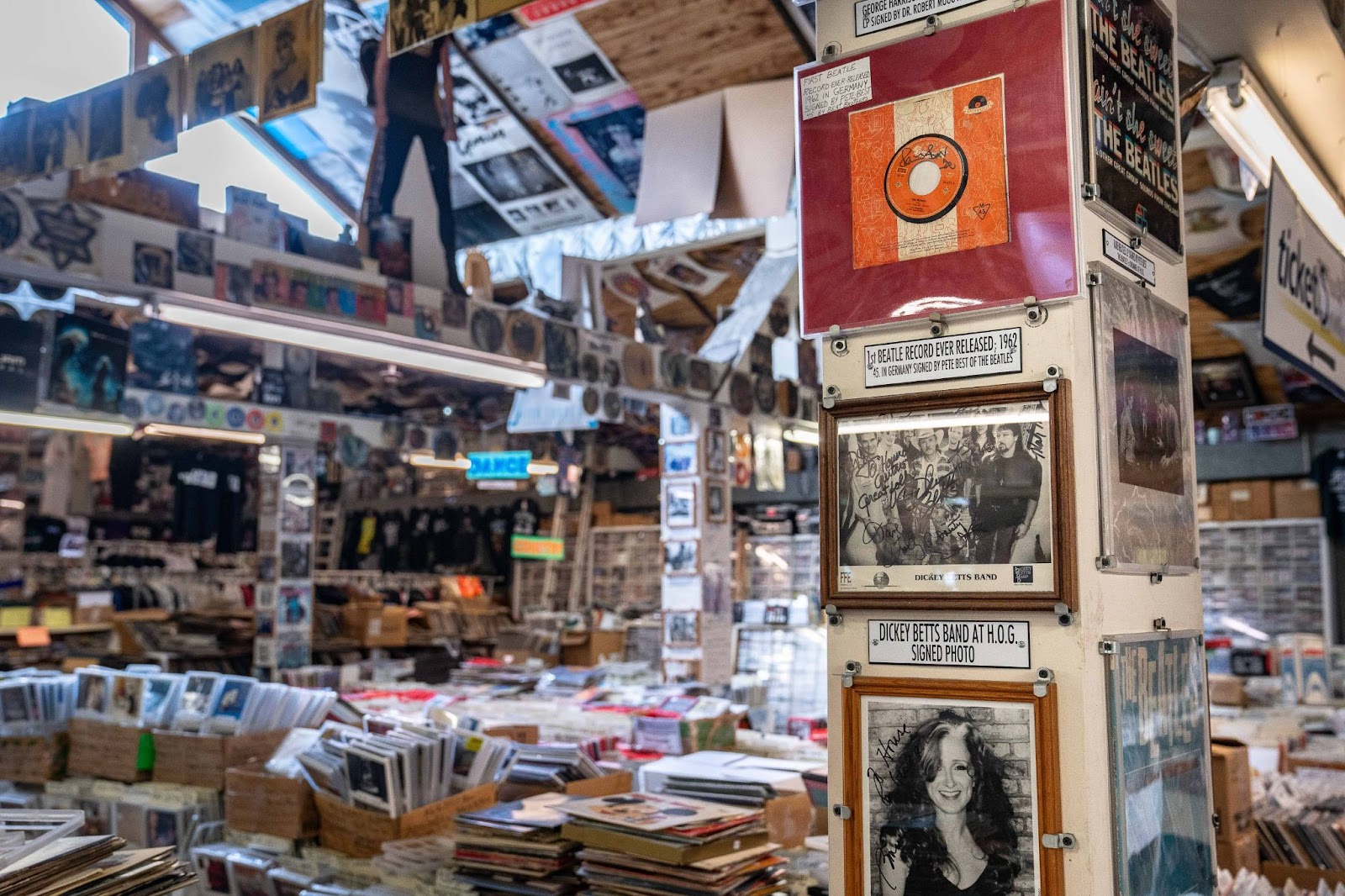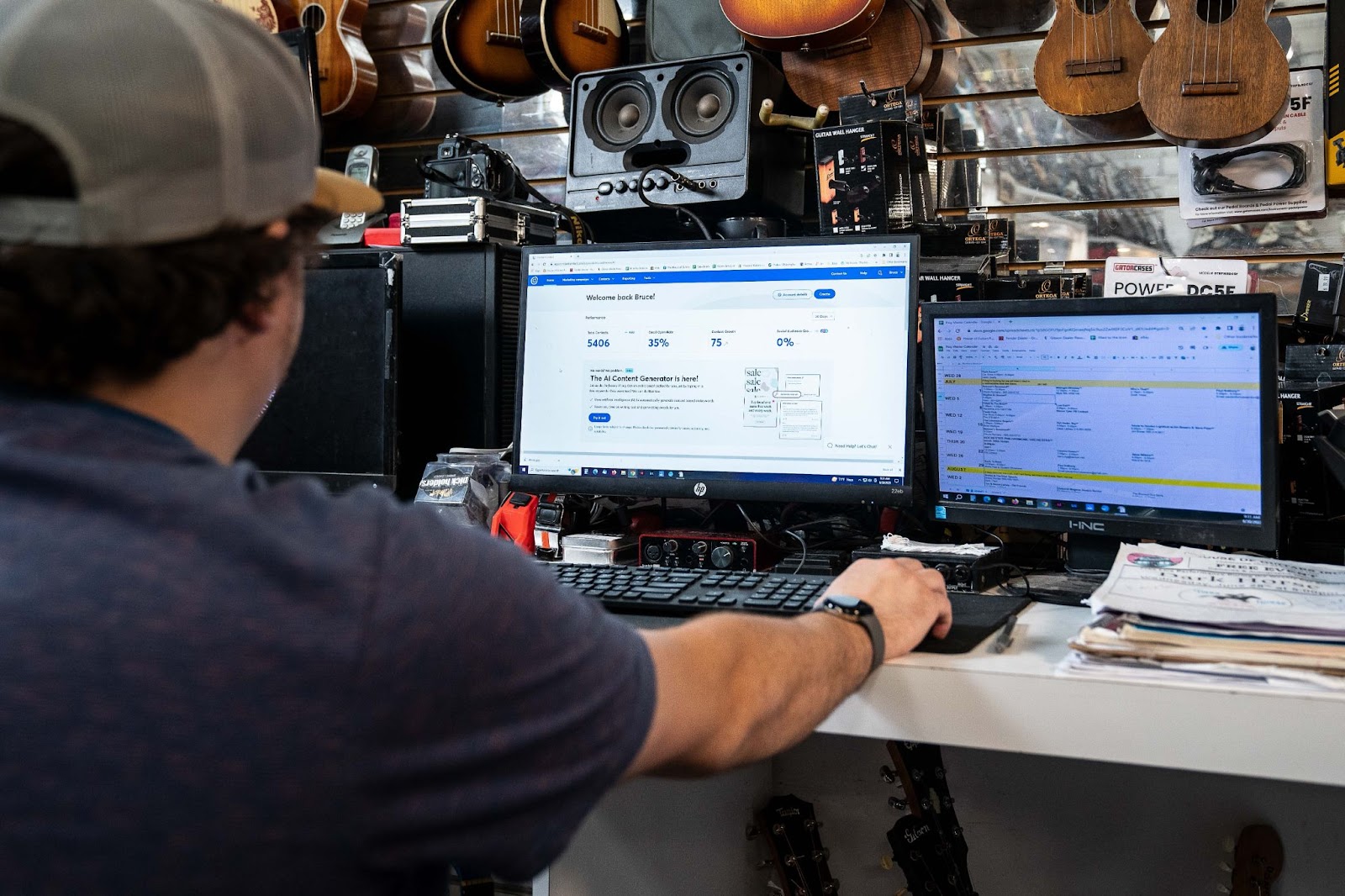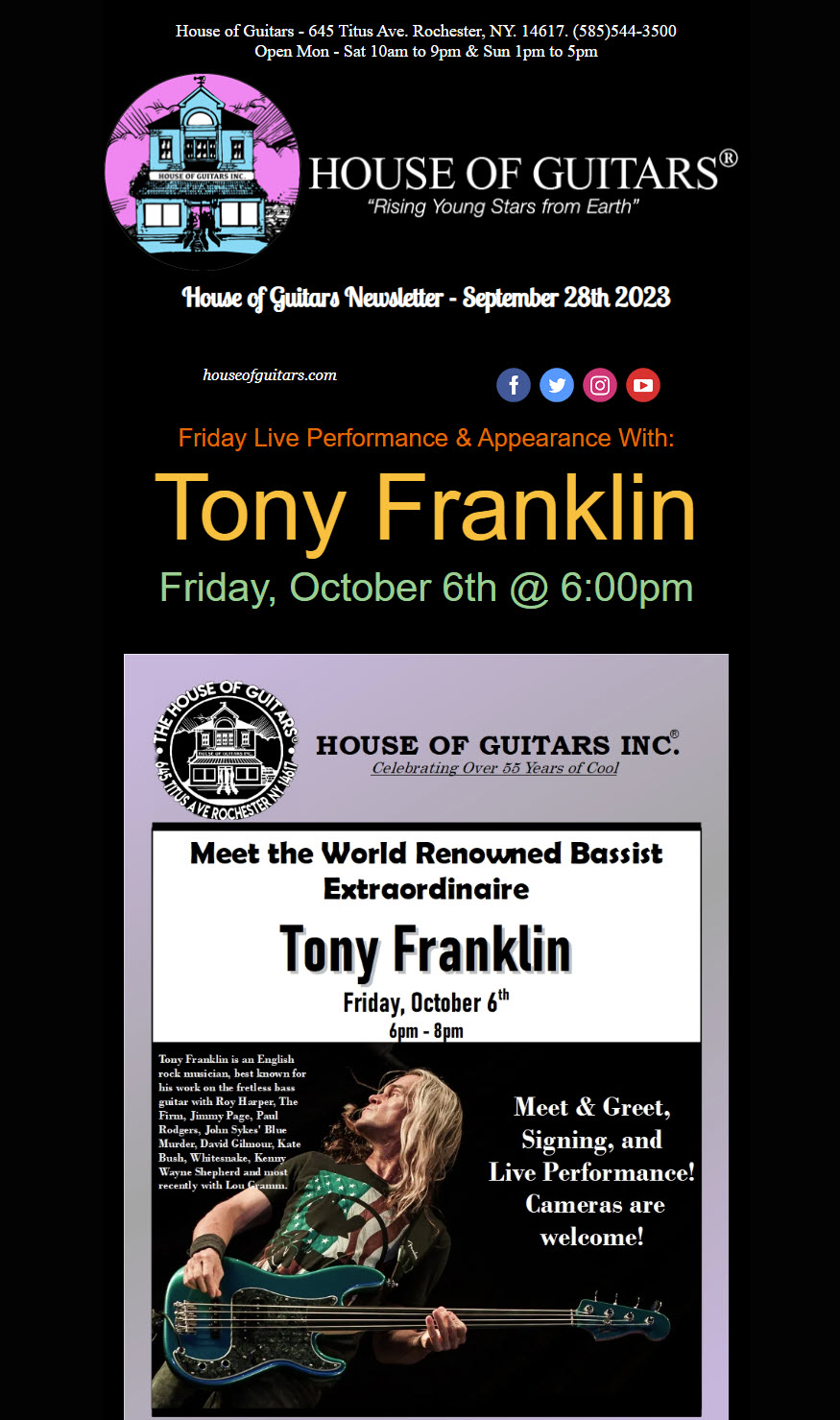
Being “the store that ate your brain” can be a heavy mantle to hold, but House of Guitars has set itself up to be a mind-bending experience right when you walk in the door. Located in Rochester, NY, House of Guitars showcases floor-to-ceiling rock memorabilia. Vinyl records, posters, and autographs line the walls — every piece of decor cementing past and future stars into the store’s history.
Owned and operated by the Schaubroeck family, the House of Guitars team uses Constant Contact to streamline their marketing and bring it toward an internet-first strategy — finding growth and profit in email marketing and social media.
Average open rate year over year: 34%
Open rate vs industry average: +1%
List growth year over year: 12%
Laying the groundwork and growing the community
Brothers Armand and Bruce Schaubroeck founded House of Guitars in 1964 in the cellar of their mother’s home. It was the same year The Beatles crossed the Atlantic and brought the British Invasion to the United States. “We started with very humble beginnings,” said Bruce. “We didn’t have money; we were young — I think I was 16 when we decided to do it.” What started as a family business is a music industry staple to this day.
Billed as the largest music store in North America, House of Guitars sells a wide variety of new and vintage guitars, amps, orchestral instruments, keyboards, and drum kits. The team also has a long history of helping outfit musicians and festivals — giving buyers the opportunity to test out equipment in their showroom and organizers the help they need to produce a quality event.
In addition to selling their products to future rock stars, they host weekly performances, offer music lessons, and house their record label, Mirror Records, in the basement.

Fostering talent and gaining exposure
Since the store was founded, it’s played its part as a meeting ground for legends. “Metallica. When they came to Rochester, they came from the Bay Area, and they were called the Bay City Thrashers. They recorded at a studio in downtown Rochester — they were hanging out here almost every day, just trying out pedals and guitars,” said Bruce. Immaculate Mary, one of the bands signed to Mirror Records, even made the attempt to become the “Loudest Band in the World” in 1988. They succeeded and made it into the Guinness Book of Records in 1990 with a record of 123 decibels.
The relationship between House of Guitars and emerging bands has proved to be symbiotic. House of Guitars provides young bands the tools to make it in the industry, and in turn, bands and musicians give exposure and continued support throughout their careers.
Switching to digital
It takes a lot to run a business, let alone establish it as a pillar of a hard and fast industry. Before the birth of Facebook and internet marketing, House of Guitars spent the majority of its almost 60 years in business using traditional marketing methods like word-of-mouth and physical mailers. What really got their name out into the community was their famously off-beat tv commercials, radio spots, and promotional contests like “World’s Worst Guitar Player.”
Now, in the height of the digital age, the team is “focusing on the internet more than ever,” said Bruce, and is doing so by employing digital marketing methods like email marketing and social media. “That’s the way to reach people today.” To support their new strategy, they began a subscription with Constant Contact thirteen years ago.
“People don’t like getting a bunch of stuff sent to their [physical] mailboxes. So with Constant Contact, we can email more regularly without annoying them,” said Michael Schaubroeck, Manager of House of Guitars. “It makes it very easy to reach out to our customers on a weekly basis.”
Tools of the trade
The team crafts email marketing campaigns with Constant Contact to inform subscribers about music releases, product sales, upcoming performances, and events. Their favorite product features include:
- Email templates and drag-and-drop functionality to easily design beautiful, engaging content to showcase their products and promote events.
- Video embedding for easy hosting.
- Large contact list capacity to keep their legions of customers, fans, and students informed, with the ability to scale up as their audience grows. To grow their list, the team at House of Guitars keeps a sign-up form at their register.

“We’re working on marketing our business every day. Really. That’s a very important part of small business. So we’re just making sure we’re active on social media and engaging customers and sending out emails,” said Michael. Their emails are definitely getting the notice of their subscribers, too, as “we have one of the higher open rates [compared to the industry average],” said Michael.
In addition to brand awareness, email marketing is helping the team make more sales. Recently, they welcomed an out-of-towner into the store. The customer had driven three hours south from Toronto, Canada, to purchase one of their rare guitars. “It’s called a Fender Rarity Stratocaster,” said Bruce. “He’d seen it on one of the emails we did — we only had one.”

Earned longevity
House of Guitars started humbly in the basement of a family home. Coinciding with a tumultuous period in history, filled with both struggle and hope, House of Guitars has built a business that lasts.
When asked about their advice to small business owners, they spoke from hard-earned experience. Their philosophy is to meet people where they’re at — whether that’s a beginner-level musician or someone who gets off from work a little later than the norm. “Be ready for a lot of hours. If you think you’re going to do a 10 to 5 and close, you know you’re in the wrong industry. You’ve got to be open when they’re [potential customers] not working.”
Since 1964 the Schaubroeck family has taken what is at the core of their business, a love of music, and made it their most significant selling point. They’re not just selling instruments — they’re giving space to new talent, jump-starting curiosity in students, and uniting customers with a priceless experience. They’re a small business to look to when you want to learn about longevity.




